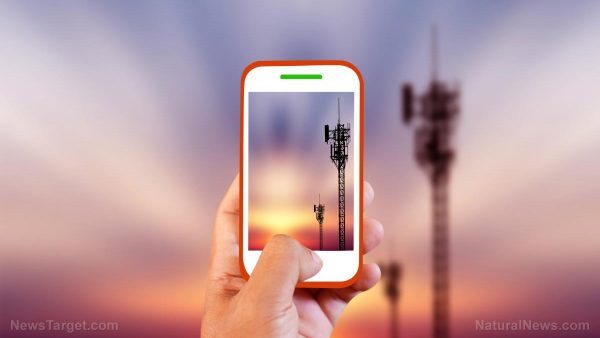Radiation.news offers a wealth of knowledge on radiation research and exposure prevention
07/16/2018 / By Vicki Batts

Radiation is a major threat to human health, and in our ever-evolving digital world, it is becoming a bigger threat than ever before. When most people hear the word “radiation,” they think of nuclear disaster, whether it be a nuclear weapon detonation or a nuclear power facility run amok. Ionizing radiation of this kind is undoubtedly lethal, but it’s not the only kind of radiation we need to be concerned about. Non-ionizing radiation, and specifically, electromagnetic radiation (EMR) are a major threat — and many of the devices in or around your home are a source of it.
How often do you see the risks of cell phones, tablets, Wi-Fi routers, smart meters and other gadgets publicized by the mainstream media? Or perhaps, more correctly, how often do you see the threat of these modern toys downplayed? Indeed, like everything else these days, industry interests seem to come before human health. While there is no doubt that the advent of things like smart phones and wireless internet have revolutionized society, the fact remains that these luxuries can come at a cost to health (in one way or another).
While the mainstream media may be reluctant to report the truth, at Radiation.news, you can learn about a variety of sources of radiation (both ionizing and EMR), what the risks are, how to avoid or limit exposure, and other health-preserving tips.
Cell phone radiation a growing threat
Everyone loves their cell phones, but if you love your brain more, it may be time to put down the smartphone and pick up your landline. Multiple studies have indicated that cell phone use is linked to an increased risk of brain cancer. Most recently, a government study found that cell phones are becoming increasingly dangerous to human health, due to their widespread (and growing) use and because of all the non-ionizing EMR they emit.

The study, led by the National Toxicology Program, reportedly found “cellphone radiation is a high-risk potential cause of cancer – and the amounts of radiation given off by most “smart” phone devices these days is more than likely much higher than what manufacturers even claim, which makes them an even more serious threat.”
In spite of this, the FDA has taken every effort to downplay these risks, by saying that only “heavy users” of cell phones are at risk. But as sources explain, what used to constituted a “heavy user” really amounts to light use in today’s world. While you may not think you or your kids use a cell phone that much, there’s actually a pretty good chance you do — and an even greater chance you ought to be wary of it.
Studies have also shown that EMR from power lines and cell towers is harmful to wildlife, too.
Surviving radiation
When it comes to EMR, putting your cell phone away is one of the biggest ways you can reduce exposure. Turning off your Wi-Fi, skipping out on smart meters and limiting device time for kids are also some other great tips for decreasing the amount of EMR you and your loved ones are exposed to.
But at Radiation.news, cellphones and other sources of “everyday” radiation aren’t the only topic of discussion — nuclear radiation is another major threat, after all. There is no shortage of coverage on the latest developments at the Fukushima disaster site, and there are plenty of tips and guides for surviving a nuclear event. You can learn everything you need to know about radiation that the mainstream media won’t tell you, and more, at Radiation.news.
Sources for this article include:
Submit a correction >>
Tagged Under:
This article may contain statements that reflect the opinion of the author





















